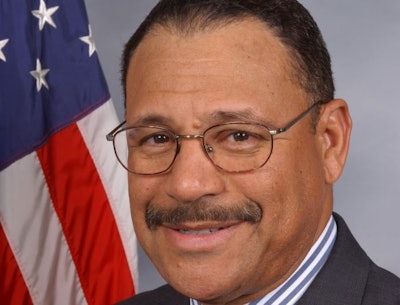
A lawmaker who serves on both the House Agriculture Committee and the House Appropriations committee acknowledged that the U.S. Department of Agriculture (USDA) Food Safety and Inspection Service (FSIS) needs to “strengthen the inspection regime” to make sure that there is a sufficient and enduring meat and poultry processing capacity.
Rep. Sandford Bishop, D-Georgia, made that remark after hearing from two witnesses during the House Agriculture Committee Subcommittee on Livestock and Foreign Agriculture’s hearing “Sustainability in the Livestock Sector: Environmental Gain and Economic Vitality.” The hearing was held on February 3.
Bishop, who is also the chairman of the House Appropriations Committee Subcommittee on Agriculture, said he wants to make sure there is ample processing capacity, and wanted to know what Congress could do “to help encourage the local and regional processing infrastructure.”
Rosie Burroughs, who operates a diversified family farm that produces beef cattle, chickens, turkeys and eggs in Denair, California, said there is a great need for smaller and mid-sized plants.
“The No. 1 necessity that we need is to have local, regional processing plants for beef, poultry or whatever other meats that we need. We have very few that are USDA inspected plants that we can use or take our animals to,” Burroughs said.
Burroughs represented the National Sustainable Agriculture Coalition at the hearing.
Kim Brackett, a cattle producer from Homedale, Idaho, also stressed the need for smaller processors. She indicated that she knows there has been an effort from the federal government to support smaller processors, but she wants to be assured that those plants will last.
“We have definitely a need in the cattle industry to increase packing capacity, so I’m very excited about all of the smaller and mid-sized processing facilities that are coming online. We are concerned that they will be sustainable, that we’ll have them in the future, that we’ll be able to keep them in business,” said Brackett, who represented the National Cattlemen’s Beef Association at the hearing.
And while there are the processing facilities that are state inspected, what is really needed are more federally inspected plants.
“I would echo what Rosie said. With the lack of inspection, not having USDA inspected facilities really limits how we’re able to sell our beef, especially across state lines,” said Brackett.


















